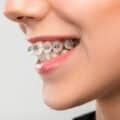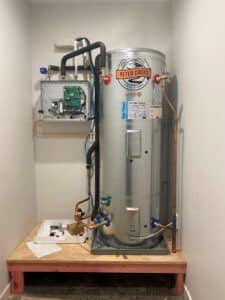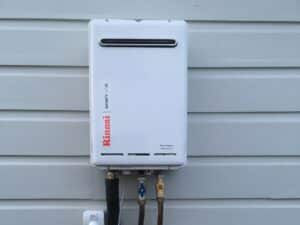Dental emergencies often strike when you least expect them—are you ready to take action? Whether it’s a sudden toothache or an accident on the sports field, recognising the signs of a dental emergency can make all the difference. Quick decisions don’t just save teeth; they can also prevent more serious health complications.
Our guide is here to help Te Awamutu residents identify when it’s time to call their dentist immediately and what steps to take in critical situations. Understanding what qualifies as an emergency could save you time, money, and pain.
What Constitutes a Dental Emergency?
Not every dental issue requires an urgent trip to the clinic. But knowing the difference between an emergency and a non-emergency is key to protecting your oral health.
A dental emergency involves situations that demand immediate attention. This includes severe pain that interferes with daily activities, a knocked-out tooth, or uncontrollable bleeding. These conditions require prompt care to minimise damage and avoid complications like infection or tooth loss.
Non-emergencies, on the other hand, include minor sensitivity, a small chip in your tooth without pain, or a lost filling that isn’t causing discomfort. While these issues are important to address, they don’t typically require same-day care.
If you’re unsure, it’s better to contact your dentist and explain your symptoms. They can help you determine whether you need an emergency appointment or if it can wait for a regular visit. Taking action early could save you unnecessary stress and discomfort.
Common Signs You Need Emergency Dental Care
Unrelenting Tooth Pain
Persistent tooth pain isn’t something to ignore. It could point to a deep infection, an abscess, or nerve damage that requires immediate attention. Watch for symptoms like sharp or throbbing pain, swelling around the gums, or sensitivity to hot and cold. These signs may worsen over time, so acting quickly can prevent bigger problems.
Swelling or Infection
Swelling in the gums, face, or jaw often signals an infection that shouldn’t be left untreated. Infections can spread to other parts of the body, leading to serious complications. If you notice unusual swelling or a bad taste in your mouth, contact a dentist right away.
Bleeding That Won’t Stop
If bleeding from your gums or mouth persists after an injury or extraction, it’s time to seek help. Prolonged bleeding could indicate a deeper problem. Until you can see a dentist, apply gentle pressure with a clean cloth or gauze to help control the bleeding.
Knocked-Out or Broken Teeth
Losing a tooth doesn’t always mean it’s gone for good—if you act fast. Rinse the tooth gently and place it in milk or saline to preserve it until you get to the dentist. Acting within the first hour significantly improves the chances of saving the tooth. Broken teeth also need quick care to prevent further damage or pain.
Loose or Lost Dental Work
Loose crowns, fillings, or bridges aren’t just inconvenient—they can cause further issues if ignored. Addressing these problems promptly can save you from more extensive repairs down the line.
Trauma or Injury to the Mouth
Sports accidents, falls, or other impacts to the face can lead to damaged teeth, gums, or even fractures in the jaw. Even if the injury seems minor, it’s important to have it checked to rule out hidden damage.
Why Emergency Dental Care is Critical
Delaying treatment for dental emergencies can have serious consequences. Infections may spread beyond the mouth, causing complications that impact overall health. Tooth injuries left untreated can result in permanent loss, affecting both your appearance and oral function.
Ignoring problems often leads to higher treatment costs later. Quick action, on the other hand, saves teeth, alleviates pain, and protects your health. Emergency dental care plays a key role in maintaining your smile and overall well-being.
What to Do During a Dental Emergency
Pain Relief
If you’re experiencing severe tooth pain, start by taking over-the-counter pain relief like ibuprofen or paracetamol to manage discomfort. Applying a cold compress to the outside of your cheek near the affected area can also help reduce swelling and numb the pain temporarily.
Bleeding Control
For bleeding, gently press a piece of clean gauze or a soft cloth onto the area. If possible, keep your head elevated to slow the bleeding. Avoid rinsing aggressively, as this could dislodge clots that help with healing.
Tooth Preservation
If a tooth has been knocked out, handle it carefully by the crown (the top part) and avoid touching the root. Rinse it gently with clean water if it’s dirty, but don’t scrub it. Place the tooth in milk or a saline solution to keep it moist, and head straight to a dentist. Quick action—ideally within an hour—gives the best chance of saving the tooth.
Immediate Contact
No matter the emergency, the most important step is to contact an emergency dentist in Te Awamutu as soon as possible. Describe your situation clearly so they can prepare to treat you promptly upon arrival.
Finding an Emergency Dentist in Te Awamutu
After-Hours Services
Look for dentists in Te Awamutu who provide after-hours care. Emergencies rarely stick to a schedule, so finding a clinic that offers evening or weekend services is key.
Local Recommendations
Ask friends, family, or neighbours for recommendations. Word of mouth is often the most reliable way to find a trusted emergency dentist. Online reviews and testimonials can also give you insight into patient experiences.
Same-Day Appointments
Some clinics in Te Awamutu are known for accommodating same-day appointments for dental emergencies. This can be a lifesaver when time is of the essence.
Verify Credentials
Ensure the dentist you choose has experience handling emergencies. Look for qualifications and affiliations with reputable organisations, such as the New Zealand Dental Association (NZDA), to ensure high-quality care.
Finding the right emergency dentist ahead of time can save you precious minutes when every second counts. Keep a trusted clinic’s contact details handy so you’re always prepared.
Preventing Dental Emergencies
Maintain Regular Dental Check-Ups
Routine dental visits are one of the best ways to avoid emergencies. Regular check-ups help dentists catch issues like cavities, gum disease, or early signs of infection before they escalate into painful problems. Prevention is always less costly and stressful than dealing with an emergency.
Practice Good Oral Hygiene
Keeping your teeth and gums healthy starts at home. Brush twice daily with fluoride toothpaste, floss regularly, and limit sugary snacks and drinks. These simple habits help prevent decay, gum disease, and other common causes of dental emergencies.
Use Protective Gear
If you’re active in sports or other physical activities, invest in a custom-fitted mouthguard to protect your teeth from impact. For those who grind their teeth at night, a night guard can prevent wear and reduce the risk of cracking or breaking teeth.
Address Minor Issues Quickly
Don’t ignore small problems like a loose filling or slight discomfort. What seems minor today can quickly escalate into a larger, more painful issue if left untreated. Act early to save time, money, and discomfort.
Frequently Asked Questions
What qualifies as a dental emergency?
A dental emergency typically involves severe pain, swelling, bleeding, or trauma, such as a knocked-out or broken tooth. If you’re unsure, it’s better to contact an emergency dentist for advice.
How much does emergency dental care cost in Te Awamutu?
Costs can vary depending on the treatment needed, but many clinics provide transparent pricing and flexible payment options. Contact your local dentist for a detailed estimate.
What should I do if I lose a tooth after hours?
If a tooth is knocked out, handle it by the crown, rinse it gently, and store it in milk or saline solution. Call an emergency dentist immediately for the best chance of saving the tooth.
Can I manage dental pain at home temporarily?
Over-the-counter painkillers, cold compresses, and rinsing with warm salt water can provide temporary relief. However, these are not substitutes for professional treatment—seek a dentist as soon as possible.
Are emergency dentists available on weekends in Te Awamutu?
Yes, many clinics in Te Awamutu offer after-hours and weekend services. Check with local dentists to find one that fits your needs and keep their contact information handy.
Can I go to the hospital for a dental emergency?
Hospitals can help manage pain and treat infections but may not have a dentist on-site. It’s best to contact an emergency dentist for comprehensive care.
How can I prevent dental emergencies while travelling?
Pack a dental first aid kit, maintain good oral hygiene, and schedule a check-up before your trip to address any potential issues in advance.
The Final Word
Recognising the signs of a dental emergency and acting quickly can make all the difference in saving your smile and preventing long-term complications. Whether it’s a persistent toothache, a knocked-out tooth, or swelling that won’t subside, knowing when and where to seek help in Te Awamutu ensures you’re never caught unprepared.
Your oral health plays a vital role in your overall well-being. By addressing dental issues promptly and maintaining good preventive habits, you’re investing in a healthier, more confident future.
Don’t let an insignificant issue turn into a huge, expensive saga. Connect with an emergency dentist in Te Awamutu today to safeguard your smile and your health.
Have you read these articles?
 Affordable Dental Care Options in Te Awamutu: A Guide for Residents
Affordable Dental Care Options in Te Awamutu: A Guide for Residents
 Root Canal Relief Simplified: Spot the Signs and Take Action
Root Canal Relief Simplified: Spot the Signs and Take Action
 How to Choose the Right Savings Account for Your Emergency Fund
How to Choose the Right Savings Account for Your Emergency Fund
 Helpful Guide to How Christchurch Orthodontists Fix Teeth Crowding
Helpful Guide to How Christchurch Orthodontists Fix Teeth Crowding
 Understanding and Correcting Overbites: A Useful Patient Guide
Understanding and Correcting Overbites: A Useful Patient Guide






